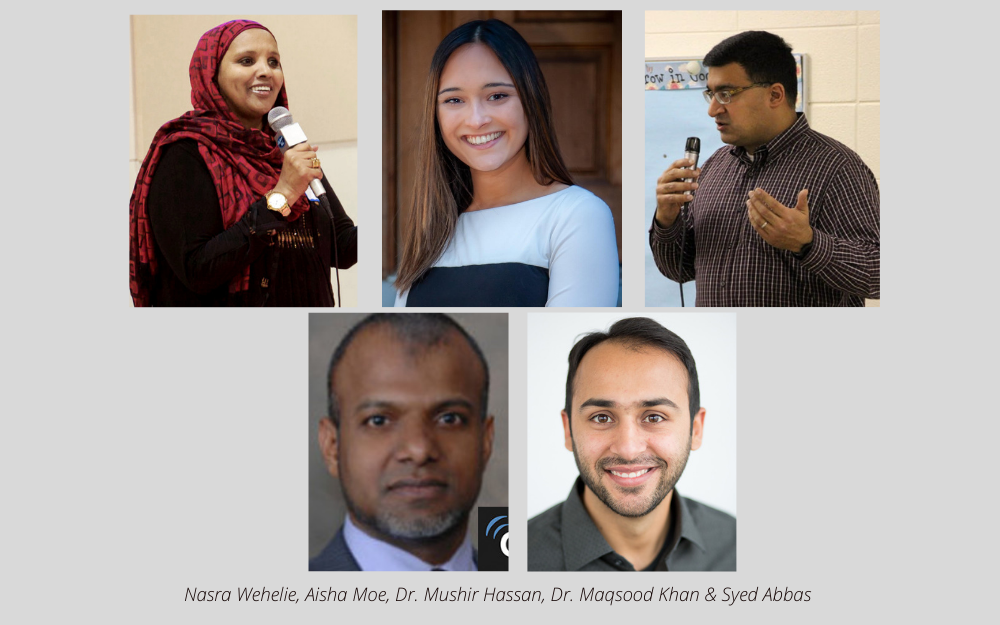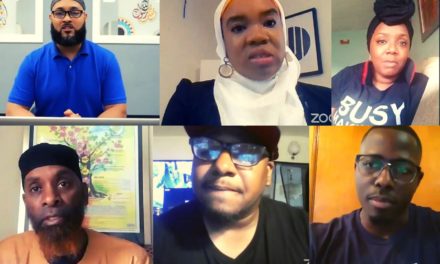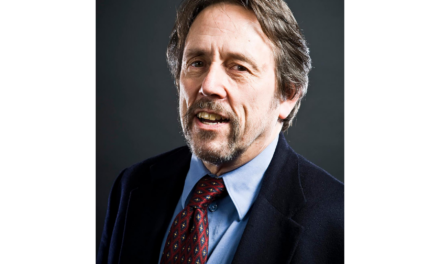Photo @:
Hiiraan, Madison365, Patch, Health.usnews, City of Madison, madison.com & Wiseye
In his nearly two years on the Madison, Wisconsin, Common Council, Syed Abbas has championed a host of measures aimed at improving the quality of life in his community, particularly those considered to be on the margins.
As an alderman and now council vice-president, Abbas has proposed or supported a mobile resource center for residents of a low-income apartment complex, several affordable housing developments, a land bank to promote homeownership among low-income residents and people of color, a police-oversight commission and a ban on chokeholds by police officers, to name a few.
“My vision was to bring more services to underserved communities. And we achieved many of those this last year,” said Abbas, a Pakistani immigrant who was first elected to represent Madison’s 12th District in April 2019.
“There’s still a lot of work to be done, especially with the Black Lives Matter movement,” he said. “But that was the idea — and to bring a unique voice as the first South Asian Muslim on the council.”
Abbas is among at least five Muslim candidates running for political offices in Wisconsin this spring — at least three on the Madison Common Council and two on suburban Milwaukee school boards.
The candidates are part of a growing wave of political action by American Muslims — as voters and candidates seeking office at all levels in recent years — a trend escalated in part by the Trump Administration’s anti-Muslim rhetoric and policies.
In the 2020 election cycle, a record 110 candidates who self-identified as Muslim were on ballots across the country, according to joint report by the advocacy groups the Council on American-Islamic Relations, MPower Change and JetPac. American Muslims also voted in record numbers last year, according to CAIR.
“What we’re seeing is our community just taking control of its political destiny,” said Ishraq Ali, field organizing director for MPower Change, a progressive, faith-based organization that creates digital and field campaigns for racial, social and economic justice.
“We have candidates who are running for office with nuanced platforms that go beyond identity politics,” he said.
“Muslims care about fair and equitable wages, removing student loan debt, etc. and if we don’t see elected officials representing our values, our people will be running for those offices,” he said.
All of the Wisconsin candidates said they were moved to run by their sense of commitment to the communities in which they live. Their Muslim identities and life experiences have shaped them as individuals, they said, but there is not some “Muslim agenda” that drives their political interests.
“We’re Americans, we want to help our country be the best it can be,” said Mushir Hassan, a Muslim physician who was appointed to a vacant seat on the Elmbrook School Board last spring and is now seeking his first full term.
“It’s more a question of folks recognizing if you want to make sure you advocate not just for yourself but for your community, you’ve got to be involved,” he said.

Nasra Wehelie
Nasra Wehelie, 50, who was appointed to represent Madison’s west-side 7th District on the Common Council in November, is running unopposed for that seat.
A Somali immigrant and mother of four who has lived in Madison for more than three decades, Wehelie has spent much of her career in nonprofits, most recently with Madison Urban Ministry, now known as JustDane. Today, she runs Empathy 4 Equity, a consulting firm that helps organizations improve their operations by building a culture of empathy.
Wehelie applied for the open seat, she said, in hopes of addressing some of the racial and economic disparities she sees in Madison.
“I’ve sat at many tables, on many boards, and I see the disparities — in economics, employment, in health — and I want to be part of the solution,” she said. “You can only do so much at the grassroots level, and I wanted to be more involved in the policy-making decisions.”
As founder of the nonprofit Muslim Youth of Madison, Wehelie is particularly interested in issues related to young people and efforts to keep them out of the criminal justice system. She’d like to develop strategic partnerships with organizations to create more opportunities for young people, including vocational training and apprenticeships.
As an alder, she said she would work to encourage more business development in her district through small business loans, mentorships, coaching and other programs; and work to help businesses that have struggled through the COVID-19 pandemic get back up on their feet.
Wehelie’s Muslim faith is a driving force in her work — along with her family and community — in that it requires her to serve others, she said.
“But when I’m doing things, it’s not just because I’m a Muslim. … It’s also to have a positive impact on the lives of others,” she said.
Since 9/11, Wehelie said, Muslims have been “stigmatized in terms of their identity.” And it’s important, she said, for them to take part in public life.
“This is our country, and we need to participate in the political process,” she said.

Aisha Moe
PROUDLY PROGRESSIVE
Aisha Moe, 22, a high school math teacher and former Democratic organizer is looking to unseat the incumbent in the Madison Common Council’s 19th District.
A Muslim woman of color — her late father was of Norwegian descent, and her mother emigrated from Pakistan in the 1970s — Moe is unabashedly progressive.
And she believes new voices and strategies are needed to address many of the daunting issues confronting Madison and the country, from the pandemic and racial and economic justice to the lack of affordable housing and climate change.
“The truth is, people in our community are vulnerable. … And now is the time for bold solutions,” she said. “I’m running to help build a Madison that works for everyone. … To make sure that everyone is represented and every issue brought to the table.”
As an alder, she said, she would work to make funds available to alleviate the pressure and financial impact of the COVID-19 pandemic. She supports a host of progressive initiatives, including a $15 minimum wage; the creation of locally owned businesses and cooperatives; the right of workers to unionize; public safety reforms; affordable housing; and those that promote clean, renewable and zero-emission energy use.
A longtime resident of the west-side district, Moe graduated from the University of Wisconsin-Madison. She has served as a Democratic Party field organizer, working to elect Gov. Tony Evers and re-elect U.S. Sen Tammy Baldwin, and as a legislative aide to state Rep. Jonathan Brostoff.
She made an unsuccessful bid for the state’s 26th Senate District last year and has since turned her sights on the Madison alder seat.
Moe became interested in politics as a 17-year-old, she said, propelled in large part by the extremist anti-Muslim rhetoric of then-presidential candidate Donald Trump. It was a heartbreaking moment when her 9-year-old brother came home crying, asking, “If Donald Trump becomes president, will our family get deported because we are Muslim?”
“In that moment, politics took on a new significance for me,” she said. “There was Islamophobia before that, but that really made me see that political candidates can shape how we see ourselves and others.”
Like all of the candidates, Moe said she has been shaped in part by her faith and mixed-race identity.
“As a mixed-race, Muslim American woman, I have learned to examine the world around me through multiple lenses,” she said. “Right now … we’re at a tipping point in shaping the future. And I believe my lived experiences, my background and my willingness to speak up and speak out on behalf of my community are what this district needs.”

Dr. Mushir Hassan
EXPERTISE IN A PANDEMIC
Dr. Mushir Hassan, 51, is the chief medical officer for Elmbrook Hospital in suburban Milwaukee and has lived and volunteered in Waukesha County’s Elmbrook School District for more than two decades.
A father of four girls in Elmbrook schools, Hassan applied for the open seat last spring hoping to help the board formulate its policies in the COVID-19 pandemic, “because that’s what I was doing at the hospital,” he said.
“I’ve always been involved in schools … whether as the physician for the East football team, a tutor or guest lecturer,” said Hassan.
“I thought, if there was ever a reason to have a physician member of the school board, it would be this past year, to help with the pandemic planning. And it went well,” Hassan said. “I think we’ve had a terrific approach to things. We’ve been in-person five days a week since the beginning of the year, and we’ve been able to sustain that model.”
Hassan is a second-generation Muslim American, born and raised in New York state, who settled in Wisconsin after college and medical school in Chicago. He attributes the increase in Muslim candidates in part to the nation’s growing diversity, but also the maturing of the Muslim immigrant population.
“With the bulk of immigration coming since the 1960s, you now have second-and third-generation Muslims going into public service,” he said.
Hassan has faced some opposition he and others see as rooted in Islamophobia.
Last fall, a parent critical of the district’s mask mandate questioned his fitness for the board, noting he is a “leader in the Islamic community” and that her children “are Christian” and “not subject to wearing masks.”
And now, he said, the Republican Party of Waukesha County regularly sends out emails supporting his opponent telling voters “he shares their values.”
“I do think it’s interesting that, for the first time in 20 years, there’s a concerted partisan effort to push my opponent for what is supposed to be a nonpartisan race,” Hassan said. They’re trying to peg me as a lefty liberal that doesn’t share their values. You have to believe there’s some degree of dog whistle in that.”
Like the other candidates, Hassan said his religion is not relevant to their races.
“I’m certainly proud of my faith background and how it informs me,” he said. “But from a school board standpoint, I’m going to campaign on my competence, leadership and approach to science. That’s what matters for a school board race,” he said.

Dr. Maqsood Khan
DIVERSITY IN LEADERSHIP
Dr. Maqsood Khan is a gastroenterologist and father of five who has lived in the Franklin School District in suburban Milwaukee County since 2014.
Dr. Khan, who was born in India, said he decided to run to bring some diversity to the board overseeing a district that is becoming increasingly more diverse.
“The demographics are changing, and right now, there is no minority representation,” said Khan, 46, who first came to the United States in 2005.
“As an American Muslim, I live daily the challenges of being a minority,” he said. “With my expertise … and leadership roles … I want to contribute and give back to my community.”
Dr. Khan does have some concerns about the way Muslims are portrayed by some in the district; he points to his own daughter’s experience in a middle-school discussion about the terrorist attacks of 9/11.
“Are there bad Muslims, yes. But there are bad people in every religion. And there are many Muslims who are contributing to society,” he said. “We need to bring some perspective.”
But his interests are much broader, he said. As a board member, Khan said, he would work to improve the district’s average ACT score, now at 22; and a relatively high dropout rate for its African-American students. He wants to see more workforce opportunities for students who are not college-bound and would work to improve the lines of communication between the board and teachers, some of whom left in the pandemic because they didn’t feel their concerns were being heard.
“Teachers are the backbone of our schools …. and we need to address the concerns of all stakeholders,” he said.
Dr. Khan, who was the third-highest vote-getter in a primary field of six, said he has been subjected to some hostility he believes is rooted in Islamophobia, including people refusing to accept his flyers or even hear him out when he is working the phone bank.
Their concerns, he said, are unfounded.
“My faith is my personal beliefs; it’s between me and the Lord. …And it has to be completely separate from political office,” he said. “I’m really running in a good-faith effort to bring more diversity and representation to the board.”

Syed Abbas
FROM THE U.N. TO MADISON
Syed Abbas is a project manager for an energy efficiency nonprofit in Madison, where he has lived for the last five years.
Abbas, 34, had worked for the Pakistani diplomatic mission to the United Nations in New York before moving with his wife, Holly Burns, back to her hometown in 2016.
He traces his interests in politics to his teenage years growing up in Pakistan, where he was active in Youth for Human Rights International and other student-level political organizations.
“We were very keen on international relationships and how we connect the dots. … But we did not have a strong connection with local government; there was a lot of corruption,” he said.
“When I moved to the United States and then Madison, and I started raising my two daughters here, I decided it was very important for me to be part of this community and part of the system, to make sure people like me — other immigrants and people of color — have more access.”
Like the other candidates, Abbas is deeply connected to and proud of his Muslim faith but sees that as distinctly separate from his role in representing his constituents.
“Yes, religion has had a personal influence on me, but on a policy level, I try to keep that separate.”














